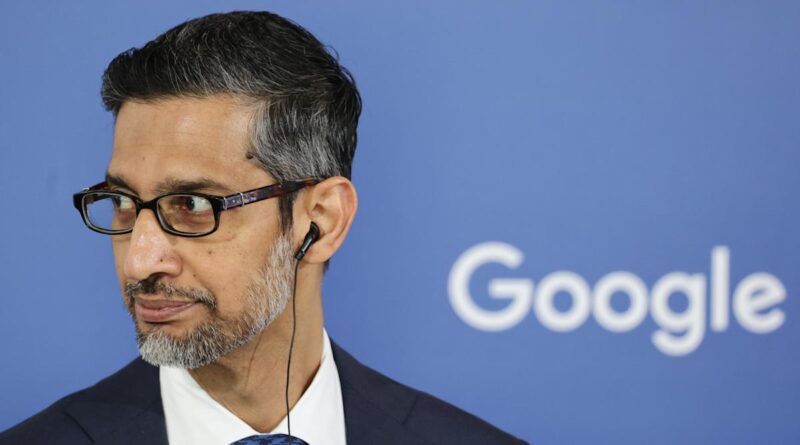Google CEO warns judge a breakup of search empire ‘will have many unintended consequences’
Alphabet (GOOG, GOOGL) CEO Sundar Pichai took the witness stand Wednesday at his company’s breakup trial in an attempt to preserve the competitive advantages of a crown jewel: Google Search.
Pichai said government proposals to break up the company, end its exclusive distribution agreements, and force it to share decades of search engine data would provide an inapt way to spur competition.
“It will have many unintended consequences,” Pichai said, according to Bloomberg.
Pichai’s testimony unfolded in the Washington, D.C., federal district court where Google went to trial in 2023 against the US Justice Department. Last August, US District Judge Amit Mehta found Google liable for illegally monopolizing the general search engine market and the market for general search engine text.
Mehta is now tasked with weighing testimony from Pichai and others in the “remedies” phase of the landmark case before ordering a fix for the monopoly while also balancing advances in artificial intelligence that are forcing an evolution of the traditional online search market.
Pichai described the government’s suggested remedies as “far-reaching” and “extraordinary,” according to reports. The proposals, he added, would make it “unviable” for Google to continue the level of research and development investments in search that it has made for the past 30 years.
The CEO testified that one of the government’s requests for a judge to order Google to sell off its Chrome browser felt like a “de facto divestiture of search” along with the intellectual property that Google developed for more than two decades.
Federal prosecutors view Google’s unsurpassed level of search data amassed through its search monopoly as a threat to emerging search products that rely on AI.
Google is trying to persuade Mehta that he should reject the DOJ’s proposals to restore competition by forcing it to sell its overwhelmingly dominant Chrome browser and by limiting its use of AI tools to enhance its existing search products.
The DOJ is also asking the judge to block Google from agreements that place Google Search in a default position on internet-connected devices. The government has said it may also seek a forced divestiture of Google’s Android operating system.
The search case is one of two ongoing antitrust litigations initiated by the federal government. In a second antitrust case also in the remedies stage of trial, a federal judge found Google liable for illegally monopolizing two online advertising technology markets.

